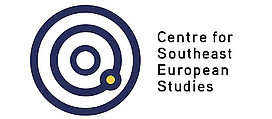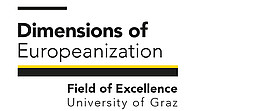Institutes and Centres
Southeast European History and Anthropology
The Centre for Southeast European History at the Karl-Franzens University of Graz is Austria's only scientific institution with a teaching and research focus on the history of Southeastern Europe. This specialization is significant for two reasons:
Firstly, due to its geographic position the Karl-Franzens University has not only been important for Southeastern Europe in the past but continues to play a crucial role in the region. This was one of the motives that led to the establishment of a chair for Southeastern European History in 1970 next to the Graz Institute of Slavic Studies, which has a strong tradition in Balkan studies. Our university's special emphasis means that we are also concerned with tasks beyond pure scientific work: making contacts, building networks, organizing grants for students from Southeast Europe, designing and supporting research projects.
Secondly, the Southeast is central to the identity of the City of Graz. Graz likes to be known as a business hub linking Austria and Southeast Europe, and the city is also the site of an international fair oriented towards the Region.
Institute for Slavic Studies
The Institute for Slavic Studies of the University of Graz researches Slavic languages and culture. Around 300 milion people speak Slavic language nowadays. The language can be divided in three groups:
Eastslavic (Russian, Ukranian, Belorussian)
Westslavic (Polish, Slovak, Upper- and Lower- Sorbian, Chezch)
Southslavic (Bosnian/Croatian/Serbian, Bulgarian, Macedonian, Slovenian)
Slavic languages are found in the direct Austrian neighbourhood: two of them (Croatian and Slovenian) are recognized as offical state languages in two federal states, Corinthia and Burgenland.
The Institute for Slavic Studies was established in 1871 and is the oldest slavic studies institute in German speaking area.
Due to the geographical proximity to Southeastern Europe, traditionally there is a priority on engaging with the South Slavic culture, especially Bosnian/Croatian/Serbian and also Slovenian; another emphasis lies on engaging with the Russian language and culture.
Institute for History
Institute for History is the biggest Institue of the Humanities Faculty located in three addresses:
- Heinrichstraße 26, 2.-4. floor
- Attemsgasse 8, ground floor , 2.-4. floor
- Mozartgasse 3, Nordtrakt
The Institute of History is divided into several departments and is connected with specialist centers, doctoral programs and associations that expand or complement the research area. In addition, the teaching activities of the institute include the subject-didactic supervision of the history, social studies and political scence students.









